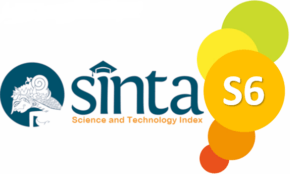Intensitas Petani Karet Di Kabupaten Banyuasin Dalam Pemenuhan Zakat Perdagangan
DOI:
https://doi.org/10.19109/iphi.v3i2.15060Keywords:
Intensity; Plantation Farmers; Trade ZakatAbstract
Zakat on traded plantation products is one type of zakat assets that must be paid by a Muslim. So, when a farmer harvests the fruit of his plantation, and gains from trading the produce, there are other Muslim rights and his wealth is deserving of zakat. In general, rubber plantation farmers in Banyuasin Regency are private property whose business is cultivated personally or paid for by others. From ancient times until now, it turns out that almost all rubber plantation farming communities in Banyuasin Regency still have no awareness of paying zakat from the rubber sap trade. Whereas from here the economy can also move and the community will benefit from the round of trade zakat funds.
This research is a qualitative research type and is carried out in depth analysis on subjects and objects that actually occur in villages in Bayuasin Regency as study material that strengthens the findings. this, where information should be easy to obtain and people's personal awareness is increasingly evident.
The findings obtained even though the average rubber plantation community in Banyuasin Regency is Muslim and carries out religious orders, their understanding of the types and importance of tithing is still lacking. In fact, the intensity of the obligation to give a small amount of his income from the rubber latex trade is still very low. This is apart from the reason that the income of the majority of these plantation farmers is unstable, the factor is low education and understanding of religious orders is still lacking. This fact is exacerbated when there has not been much socialization of the existence and use of official Zakat Collection Units (UPZ) at each mosque in the villages with the availability of trained officers who are willing to take care of the calculation and receipt of zakat from the rubber latex trade, causing rubber farming communities to be increasingly reluctant to pay zakat from their rubber latex trade.
Zakat on traded plantation products is one type of zakat assets that must be paid by a Muslim. So, when a farmer harvests the fruit of his plantation, and gains from trading the produce, there are other Muslim rights and his wealth is deserving of zakat. In general, rubber plantation farmers in Banyuasin Regency are private property whose business is cultivated personally or paid for by others. From ancient times until now, it turns out that almost all rubber plantation farming communities in Banyuasin Regency still have no awareness of paying zakat from the rubber sap trade. Whereas from here the economy can also move and the community will benefit from the round of trade zakat funds.
This research is a qualitative research type and is carried out in depth analysis on subjects and objects that actually occur in villages in Bayuasin Regency as study material that strengthens the findings. this, where information should be easy to obtain and people's personal awareness is increasingly evident.
The findings obtained even though the average rubber plantation community in Banyuasin Regency is Muslim and carries out religious orders, their understanding of the types and importance of tithing is still lacking. In fact, the intensity of the obligation to give a small amount of his income from the rubber latex trade is still very low. This is apart from the reason that the income of the majority of these plantation farmers is unstable, the factor is low education and understanding of religious orders is still lacking. This fact is exacerbated when there has not been much socialization of the existence and use of official Zakat Collection Units (UPZ) at each mosque in the villages with the availability of trained officers who are willing to take care of the calculation and receipt of zakat from the rubber latex trade, causing rubber farming communities to be increasingly reluctant to pay zakat from their rubber latex trade.
Downloads
Published
Issue
Section
License
Copyright Notice here












